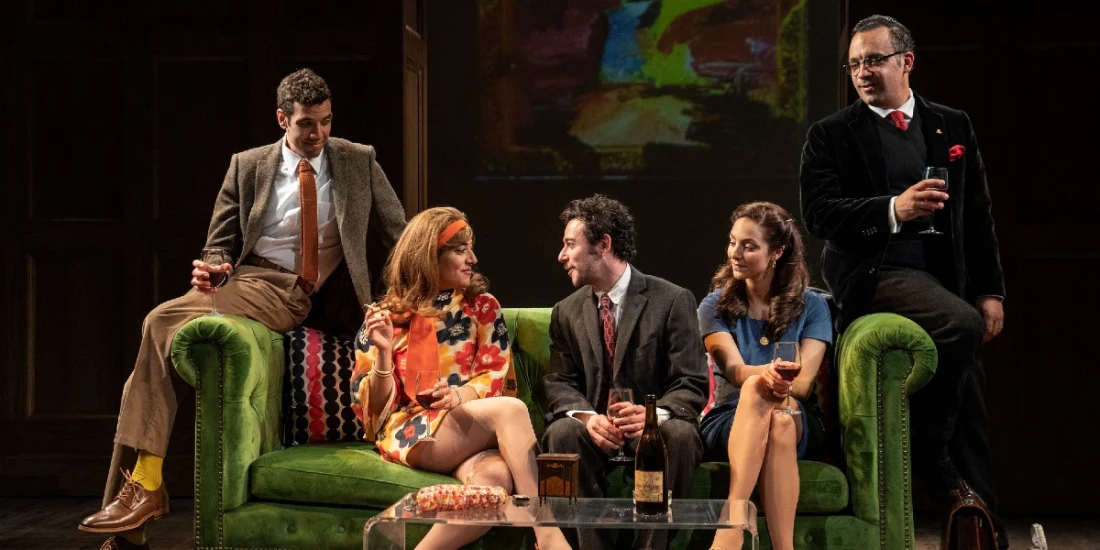'The Vagrant Trilogy' review — a heartbreaking story of Palestinian displacement
During a heated exchange in Part 2 of Mona Mansour's The Vagrant Trilogy, the Palestinian scholar Adham, while living in London, says of his brother stuck in the Middle East, "He only knows how to be a refugee and wait." His ex-wife, who wants Adham to help him get his brother out of there, snaps back, "It's so easy to say when he's just an abstraction to you." From over here in New York, it's easy for us to see the plight of refugees as an abstraction, be they Palestinians, Ukrainians, or any number of others. But it's impossible to do so after seeing The Vagrant Trilogy, which uses the story of one man and his family to comment on the toll of being displaced from one's home.
Act 1 of The Vagrant Trilogy takes place in 1967, when Adham (Hadi Tabbal), a scholar of William Wordsworth, travels from present-day Jordan to London to deliver a lecture. First, though, he meets and falls for Abir (Tala Ashe), a headstrong woman from a peasant background. Their initial meet-cute, atop a hill above their village, kicks off The Vagrant Trilogy on a sweet, rom-com-esque note. This setup immediately endears us to the characters, and gets us invested in whether their relationship — and their individual spirits — will survive the revelation at the act's end: Palestine is erupting into war, and the couple must choose whether to return or stay, together or separately.
The remaining two parts show the consequences of each choice, particularly on Adham. Act 2 sees his career in academia survive in London (albeit at a "less prestigious university" than the one he first lectured at, where he is repeatedly cast as the "other" even after many years), but his marriage with Abir fail. The opposite happens in Act 3, which sees the couple, their siblings, and their children crammed into a ramshackle refugee camp in Lebanon with little hope for leaving. All three acts cleverly use discussions of Wordsworth's writing about a "vagrant" to explore what it means to actually be one, and the complexity of that experience.
Whereas Act 2 focuses mostly on Adham, we see the effects of Adham's choice trickle down a generation in Act 3, making it the show's most affecting portion. It's especially heartbreaking to watch Adham, who constantly wonders what his career could have been had he stayed in London, take out his resentment on his enterprising teenage daughter, Jamila (Nadine Malouf, playing both teenage silliness and willfulness perfectly).
At many points, the scene changes right after a pointed remark or climactic statement, leaving little time to sit with The Vagrant Trilogy's most intense moments. But there are three and a half hours' worth of show to get through, after all, and the characters' hardships resonate all the same. The Vagrant Trilogy closed on May 15 (Covid sidelined the main actors toward the end of the run, pushing back my attendance), but hopefully this poignant play gets a second life.
The Vagrant Trilogy was at The Public Theater.
Photo credit: Rudy Roushdi, Nadine Malouf, Hadi Tabbal, Tala Ashe, and Osh Ashruf iin the New York premiere of The Vagrant Trilogy. (Photo by Joan Marcus)
Originally published on
